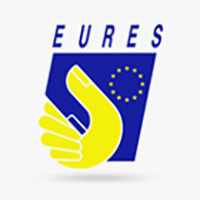European Union - EmploymentThe European Employment Strategy is one element of the European Union's growth strategy. Its main priorities are to:
The European Union have created tools and portals for your quest in searching for work: |
|
Social EuropeThe European Union continually strives to enhance its growth and the lives of European citizens. It has developed many policies and tools relating to employment social affairs and inclusion. The following links provide information on finding work, living and studying in Europe:
|
|
European Union - Creating key documents for applying for work in the EUThere are many ways that a person can document their qualifications, skills and work experience when applying for work. The difficulty is finding a format that displays your information clearly and concisely. The European Commission in collaboration with CEDFOP have created a website, EUROPASS, that helps you with this problem. EUROPASS provides set forms for you to create a portfolio (Skills Passport) of all the documents you will need when applying for work:
Please note that CVs can also be created and downloaded on the EURES website. |
|
European Union - Working in the EUThere are various ways to search for work in the European Union. The European Commission has grouped the types of work under three broad categories: When searching for work abroad there are things (additional information, i.e. taxes, work permits, recognition of qualifications, etc) that should be taken into consideration. Note: for more help contact our representatives in Cyprus Working in EU CountriesEURES is a European job mobility portal created by the European Commission to provide information, advice and recruitment/ placement (job-matching) services. EURES is a co-operation network between the European Commission and the Public Employment Services of the EEA Member States (The EU countries plus Norway, Iceland, Switzerland and Liechtenstein) and other partner organisations. Using this portal you can:
Click here to see a short video on "How to use the EURES Portal - for jobseekers" Working in EU InstitutionsEU Careers (European Personnel Selection Office - EPSO) is the official portal to apply for work in any of the EU Institutions. The portal is available in any of the 24 official EU languages. To work in an EU institution you must have a good command of at least 2 European Languages: your main language plus English, French or German. Within the portal you will find and be able to:
Working in EU Research
EURAXESS - Researchers in Motion provides access to information and support services to researchers wishing to pursue their research careers in Europe or stay connected to it. The EURAXESS job portal includes a search engine that will allow you to look for positions using keywords, by country, by research field, researcher level, etc. It also provides external links for fellowships and Grants. Having searched and found a position of interest, click on the position title. A browser window opens giving full description of the position and links where to apply for the position. |
|
Starting up a BusinessThe European Union continually strives to improve itself and the quality of life for its citizens. Supporting citizens to start their own businesses plays an import role in reaching these objectives. The EU sees small and medium enterprises (SMEs) as key drivers for economic growth, innovation, employment and social integration. To aid the development and sustainability of these enterprises the European Commission offers advice, information and funding to support these initiatives:
Additional information:
|
|
Europe and YouthsThe Directorate General for Education and Culture (DG EAC), is the branch of the European Commission charged with all aspects relating to European Youths. It has eight main areas of responsibility in the field of youth, outlined in the EU Youth Strategy 2010-2018, covering the education, work, wellbeing, and inclusion of youth across Europe.
European Youth PortalThe European Youth Portal (Cyprus) offers European and national information and opportunities that are of interest to young people who are living, learning and working in Europe, such as:
|
|
Traineeships (Internships)The employment market is becoming extremely competitive and it is vital for people to improve their skills and increase their work experience. Traineeships (Internships) are an ideal way to do this and it is an ideal opportunity to build up your business network. There are two main sources where you can apply for traineeships in the EU:
These placements can be found through the EURES website. EURES is a European job mobility portal created by the European Commission to provide information, advice and recruitment/ placement (job-matching) services. Traineeships in EU InstitutionsApplications for traineeships are generally made through the institutions website:
EurodeskEurodesk provides information on European policies and opportunities for young people. The information given aims to inform the reader of developments in the EU and provide sources, which will allow the reader to follow the debates on these key issues at European level. |
|
European Union - EducationThe European Commission has provided many resources, information links, tools for all areas relating to Education:
|
|
|
|
|
|
|
|
Social Europe - Living in & Moving around EuropeThe EU motto is: "United in diversity" It signifies how Europeans have come together, in the form of the EU, to work for peace and prosperity, while at the same time being enriched by the continent's many different cultures, traditions and languages. To ensure it continues to be united and diverse the EU has developed many tools, information centres/organisation, projects & programmes, etc to enrich the lives and participation of its citizens. Below is a consolidated list of important links to enhance your lives in the EU:
|
|
|
|
||||||||||||||||||






 European Commission Traineeships
European Commission Traineeships







